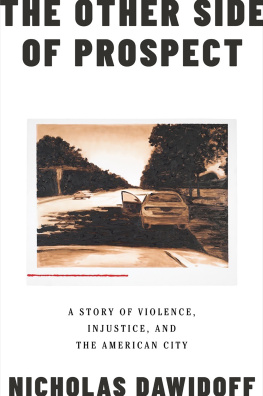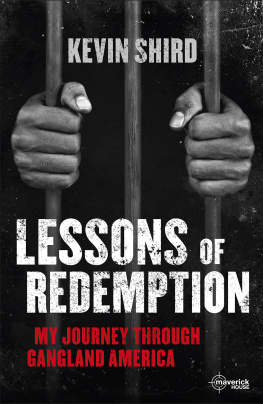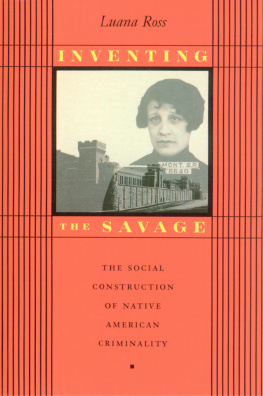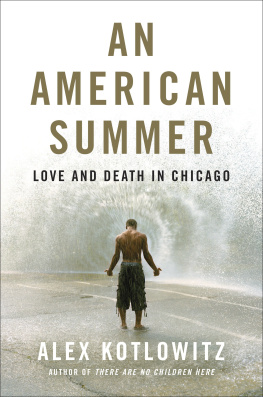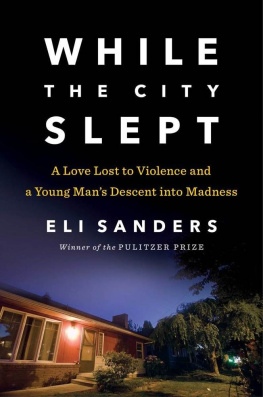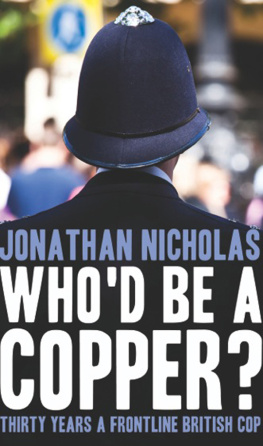Nicholas Dawidoff - The Other Side of Prospect: A Story of Violence, Injustice, and the American City
Here you can read online Nicholas Dawidoff - The Other Side of Prospect: A Story of Violence, Injustice, and the American City full text of the book (entire story) in english for free. Download pdf and epub, get meaning, cover and reviews about this ebook. City: New York, year: 2022, publisher: W. W. Norton & Company, genre: Science. Description of the work, (preface) as well as reviews are available. Best literature library LitArk.com created for fans of good reading and offers a wide selection of genres:
Romance novel
Science fiction
Adventure
Detective
Science
History
Home and family
Prose
Art
Politics
Computer
Non-fiction
Religion
Business
Children
Humor
Choose a favorite category and find really read worthwhile books. Enjoy immersion in the world of imagination, feel the emotions of the characters or learn something new for yourself, make an fascinating discovery.
- Book:The Other Side of Prospect: A Story of Violence, Injustice, and the American City
- Author:
- Publisher:W. W. Norton & Company
- Genre:
- Year:2022
- City:New York
- Rating:4 / 5
- Favourites:Add to favourites
- Your mark:
The Other Side of Prospect: A Story of Violence, Injustice, and the American City: summary, description and annotation
We offer to read an annotation, description, summary or preface (depends on what the author of the book "The Other Side of Prospect: A Story of Violence, Injustice, and the American City" wrote himself). If you haven't found the necessary information about the book — write in the comments, we will try to find it.
One of Literary Hubs Most Anticipated Books of 2022
A landmark work of intimate reporting on inequality, race, class, and violence, told through a murder and intersecting lives in an iconic American neighborhood.
One New Haven summer evening in 2006, a retired grandfather was shot point-blank by a young stranger. A hasty police investigation culminated in innocent sixteen-year-old Bobby being sentenced to prison for thirty-eight years. New Haven native and acclaimed author Nicholas Dawidoff returned home and spent eight years reporting the deeper story of this injustice, and what it reveals about the enduring legacies of social and economic disparity.
In The Other Side of Prospect, he has produced an immersive portrait of a seminal community in an old American city now beset by division and gun violence. Tracing the histories of three people whose lives meet in tragedyvictim Pete Fields, likely murderer Major, and BobbyDawidoff indelibly describes optimistic families coming north from South Carolina as part of the Great Migration, for the promise of opportunity and upward mobility, and the harrowing costs of deindustrialization and neglect. Foremost are the unique challenges confronted by children like Major and Bobby coming of age in their forgotten neighborhood, steps from Yale University. After years in prison, with the help of a true-believing lawyer, Bobby is finally set free. His subsequent struggles with the memories of prison, and his heartbreaking efforts to reconnect with family and community, exemplify the challenges the formerly incarcerated face upon reentry into society and, writes Reginald Dwayne Betts, make this the best book about the crisis of incarceration in America.
The Other Side of Prospect is a reportorial tour de force, at once a sweeping account of how the injustices of racism and inequality reverberate through the generations, and a beautifully written portrait of American city life, told through a group of unforgettable people and their intertwined experiences.
Nicholas Dawidoff: author's other books
Who wrote The Other Side of Prospect: A Story of Violence, Injustice, and the American City? Find out the surname, the name of the author of the book and a list of all author's works by series.

